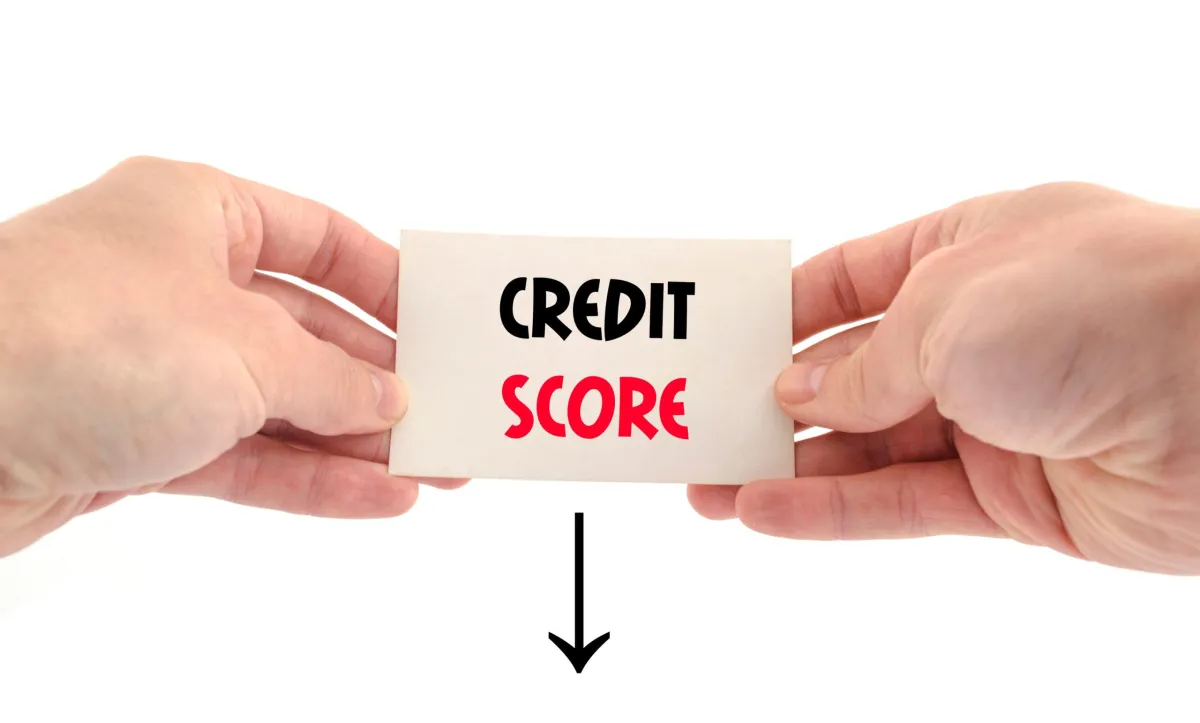Why Did My Credit Score Drop

Sometimes, your credit score can shock you by dropping for seemingly no reason. This can be discouraging and frustrating if you can't pinpoint a cause. Below are some factors that can affect your score, and you may be able to trace a drop in your score to one of these factors.
1.Payment History: Since creditors are trying to judge how likely you are to pay back your debt, reliability is important to them. If you miss even a single payment, your score could take a major hit, especially if you've never missed a payment before. Payment history makes up 35% of your credit score, making it the SINGLE MOST IMPORTANT FACTOR in your FICO scores. Therefore, make all payments on time, even if it is only the minimum payment amount.
Possible Solution: Moving forward, check whether your credit card provider will allow you to set up automatic payments or link your financial accounts to turn on bill reminders. This can help avoid missing future payments. Additionally, continue monitoring your credit report to ensure all of your payments are being reported as on time.
2.Credit Utilization: Carrying a significant amount of debt on your credit cards could be one reason why your score dropped. Your credit card utilization rate is a snapshot of how much credit you are using, calculated by dividing your total credit card balance by your total credit limit.
If you are relying too much on credit, a lender could view that as a bad sign. How you manage your credit makes up 30% of your credit score, so use it wisely. If you don't, the lender may lower your available credit as you pay it down or even close the account.
Possible Solution: If you have the means, you can try different approaches to paying down debt. For example, you could use the debt snowball method, where you pay down your smallest balances first to gain momentum and make your debt seem more manageable, while continuing to make minimum payments on your other debts.
3.Derogatory Marks: If you experienced a major drop in your credit score, a derogatory mark could be the culprit. Tax liens, accounts in collections, and bankruptcies are among the most serious issues that can affect your credit score. Since they represent major delinquencies, they can reflect poorly on your ability to manage your finances.
4.Average Age of Open Credit Lines: The longer you've had credit accounts open, the more creditworthy you generally appear to lenders. If you've closed an account recently, some scoring models may not factor in your closed account when determining your credit age, which could cause your credit history to appear shortened and your score to drop. Opening a new account could also lower the average age of your accounts.
5.Total Accounts: While it's not the most important part of your credit score, having a good mix of different types of credit and an appropriate number of open accounts shows lenders that you have the experience to pay off debt responsibly. If you've just paid off your only loan, your credit mix might look less diverse to lenders. Similarly, if your total number of accounts suddenly skyrockets or nosedives, that could indicate that you're financially strapped and either need credit or can’t afford your existing accounts.
Possible Solution: Before you open or close any accounts, check your credit reports to see the distribution of your open and closed accounts. This will help you understand where you stand. If you're thinking about opening a new credit card, don’t fall for every offer out there—only open the ones that you truly need.
6.Hard Credit Inquiries: Generally, when you apply for a new form of credit—whether it's a credit card, auto loan, or mortgage—a hard inquiry is placed on your credit report. Normally, a single inquiry would only cause your score to drop a few points (if at all). However, if you've applied for several accounts in a short period of time, you could appear desperate for credit, and the damage from those hard inquiries might add up.
Possible Solution: To avoid unnecessary inquiries, only apply for credit when you need it (and can afford it), and focus on cards that you have a good chance of getting approved for. You can also consider getting pre-qualified or pre-approved for credit, so you have a better sense of what you’ll be approved for before you apply. By doing your homework, you may be able to avoid unnecessary hard inquiries.
